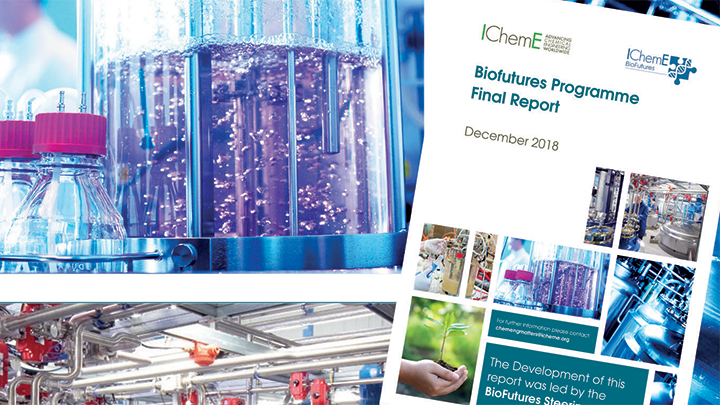IChemE Launches BioFutures Report

Daniel Firth reports on the findings and recommendations of the BioFutures programme
CHEMICAL engineering and society are facing some significant challenges, including: the rapid development of the bioeconomy, the pressure to decrease greenhouse gas emissions, and the increasing emphasis on sustainability. These challenges will dramatically change the chemical engineering community, how we define chemical engineering, and will require fundamental changes to the ways IChemE functions and how we continue to promote the profession of chemical engineering. The BioFutures programme was set up to identify how IChemE might address these challenges. The programme presented its key findings and recommendations to IChemE’s Board of Trustees in January 2019.1
In a global context, the growth of the bioeconomy and engineering biology is having a great impact on the chemical engineering profession.2 This covers a broad range of sectors and industries and involves a variety of biological processes and purposefully bioactive substances including fermentation, synthetic biology, biocompatible materials and the development and manufacturing of drugs and biologics.
The biotechnology and bioengineering landscape is undergoing a transformation, which is driving a substantial need for chemical and biochemical engineering skills
The biotechnology and bioengineering landscape is undergoing a transformation, which is driving a substantial need for chemical and biochemical engineering skills. The IChemE BioFutures programme was launched3 in November 2017, to advise the Institution on how it might adapt as the profession evolves, develop the Institution’s work in the biosector, and highlight the importance of biochemical engineering careers and skills. The programme consists of four working groups to address key areas identified by the steering group:
- Skills - identifying required skills and any skills gaps;
- Small and medium enterprises (SMEs) – understanding how IChemE currently engages with SMEs, and potential opportunities for engagement;
- Careers – the types of career opportunities in the biosector and how IChemE can promote these; and
- Policy – identifying how IChemE can shape policy in the biosector.
These working groups reviewed IChemE’s current activities in these areas, with input from our global membership and extending into a large network of SMEs across a range of international territories. A policy consultation was conducted with all BioFutures programme members, relevant IChemE special interest groups (SIGs), and national IChemE boards. More than 90 SMEs were also approached for consultation. Surveys were conducted with 159 organisations in industry and 39 universities, and interviews were carried out with biochemical and chemical engineers representing a range of career paths from across the biosector. The findings and recommendations were compiled in a final report.
Recent Editions
Catch up on the latest news, views and jobs from The Chemical Engineer. Below are the four latest issues. View a wider selection of the archive from within the Magazine section of this site.




